Minelab GO-FIND 22 Review: The Ultimate Beginner's Detector?

Written by Piotr Lesniewski
Detectorist • Scotland
As an Amazon Associate we earn commission from qualifying purchases. Read our full Affiliate Disclosure.
When Minelab announced the updated GO-FIND series back in late 2017 for a 2018 release, there was a definite buzz. The original GO-FINDs had made a splash with their unique, collapsible design, and this new generation promised to refine the experience. The GO-FIND 22 was positioned as the most accessible model, aimed squarely at newcomers.
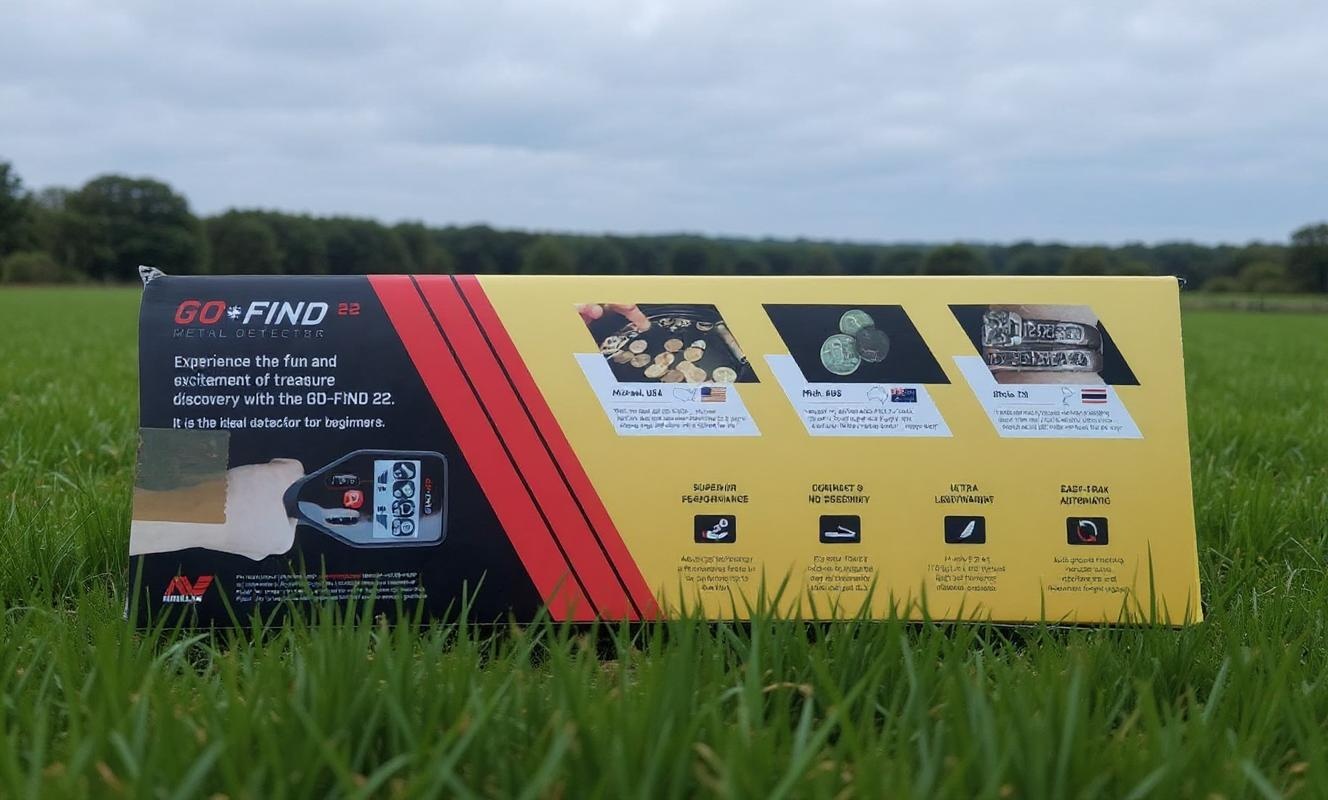
I was eager to see if it could deliver a genuine, rewarding detecting experience in such a simplified, portable package.
Over the past few weeks, I've taken it to local parks, combed through some fields after a harvest, and even hit the wet sand at the beach. Honestly, my time with it has been a rollercoaster of initial delight at its simplicity followed by a grounded understanding of its place in the hobby.

Minelab GO-Find 22
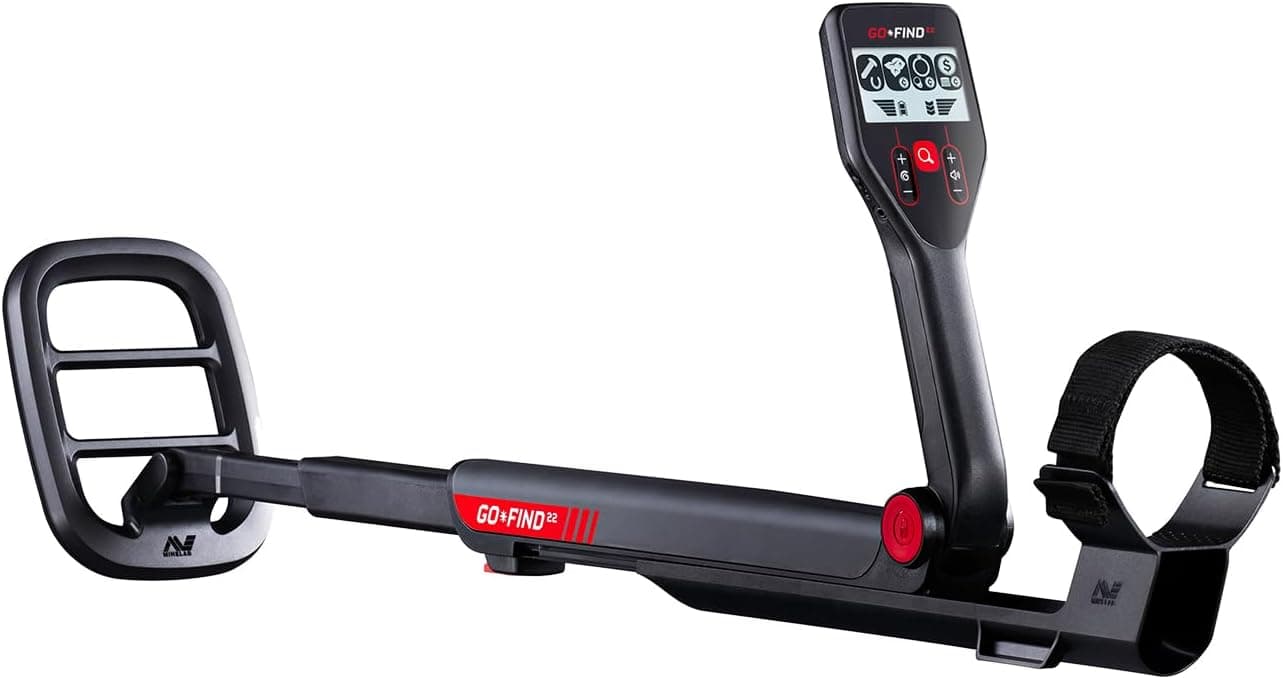
As an Amazon Associate we earn from qualifying purchases.
My Final Thoughts
The Good
- ●Absolute Beginners & Children: Its simplicity, light weight, and instant setup make it the perfect introductory machine.
- ●Families: It's a great "family detector" to take on camping trips or to the beach for a fun afternoon activity.
- ●Casual Hobbyists: If you just want something to pack easily and use occasionally in parks without getting too serious, this is a great choice.
- ●As a Backup/Travel Detector: Its incredible portability means you can stash it in a car or backpack for opportunistic hunts.
The Bad
- ●You Are Serious About the Hobby: You will outgrow its capabilities very quickly.
- ●You Hunt in High-Trash or Mineralized Areas: The simple technology will struggle in difficult conditions.
- ●You Want to Find Old, Deep Relics or Coins: This is not a deep-seeking machine.
- ●You Have a Slightly Higher Budget: Other detectors offer significantly more performance for a little more money.
Unboxing & Initial Setup: 9/10
Getting the GO-FIND 22 out of the box and ready for action is, without a doubt, its most impressive feature. There's virtually no assembly required. The detector comes folded into a compact, 22-inch block.
I literally just unclipped two locks, unfolded the main body, and extended the shaft to my height. The whole process takes less than twenty seconds. After years of assembling detectors with various nuts, bolts, and cables, the feeling of instant gratification here is incredible. It’s a brilliant design that immediately removes the intimidation factor.
The box contains the detector itself, two peel-and-stick camouflage skins, and the user manual. The only thing I had to do was pop in four AA batteries, which are not included. Once the batteries were in, I pressed the power button, and it was ready to go.
For a beginner or a parent wanting to get their kid started quickly on a camping trip, this hassle-free setup is a massive win. It’s the definition of "grab and go," and Minelab absolutely nailed this aspect.
Minelab GO-FIND 22 Specifications
Feature | Specification |
Search Technology | VLF (Very Low Frequency) |
Operating Frequency | 7.8 kHz |
Find Modes | 2 |
Search Coil | 8-inch Monoloop (Waterproof) |
Target ID | 4 Visual Icons (Nail, Foil, Ring, Coin) |
Audio Tones | 2 |
Ground Balance | Automatic Tracking (Easy-Trak) |
Pinpoint Mode | No |
Sensitivity Adjustment | 3 Levels |
Volume Adjustment | 5 Levels |
Display | LCD |
Length (Extended) | 51.4 in / 1305 mm |
Length (Collapsed) | 21.9 in / 555 mm |
Weight | 2.2 lbs / 1.0 kg |
Batteries | 4 x AA (Not Included) |
Headphone Jack | Yes, 3.5mm (1/8") |
Coil only (to 2 ft / 0.6m) |
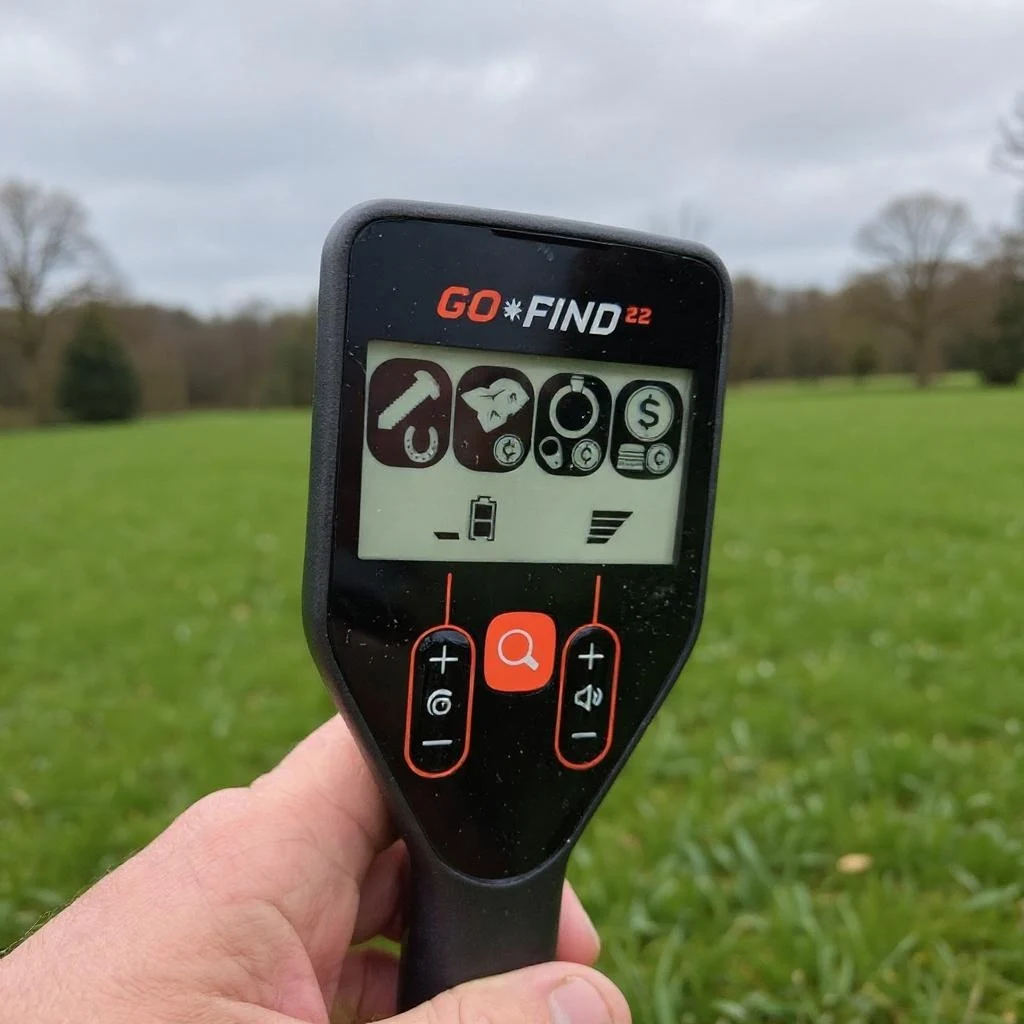
Design, Build Quality & Ergonomics: 6/10
The GO-FIND 22’s design is a tale of two halves. On one hand, its collapsible, all-in-one frame is revolutionary for portability. At only 1.0 kg (2.2 lbs), it is incredibly lightweight. I can swing this detector for hours without any fatigue in my arm or shoulder, which is fantastic.
However, the build quality is where you feel the budget price point. The entire construction is plastic, and while it feels sturdy enough for casual use, it doesn't inspire confidence.
I remember stumbling over a tree root in the woods and my heart skipped a beat as the detector swung out and bumped a tree. It was fine, but the hollow thwack sound made me wince; I just don't have that feeling of rugged security I get with higher-end machines.
The handgrip is functional but not very comfortable. The lack of a proper armrest with a strap means my wrist feels the strain after an hour or so of continuous swinging.
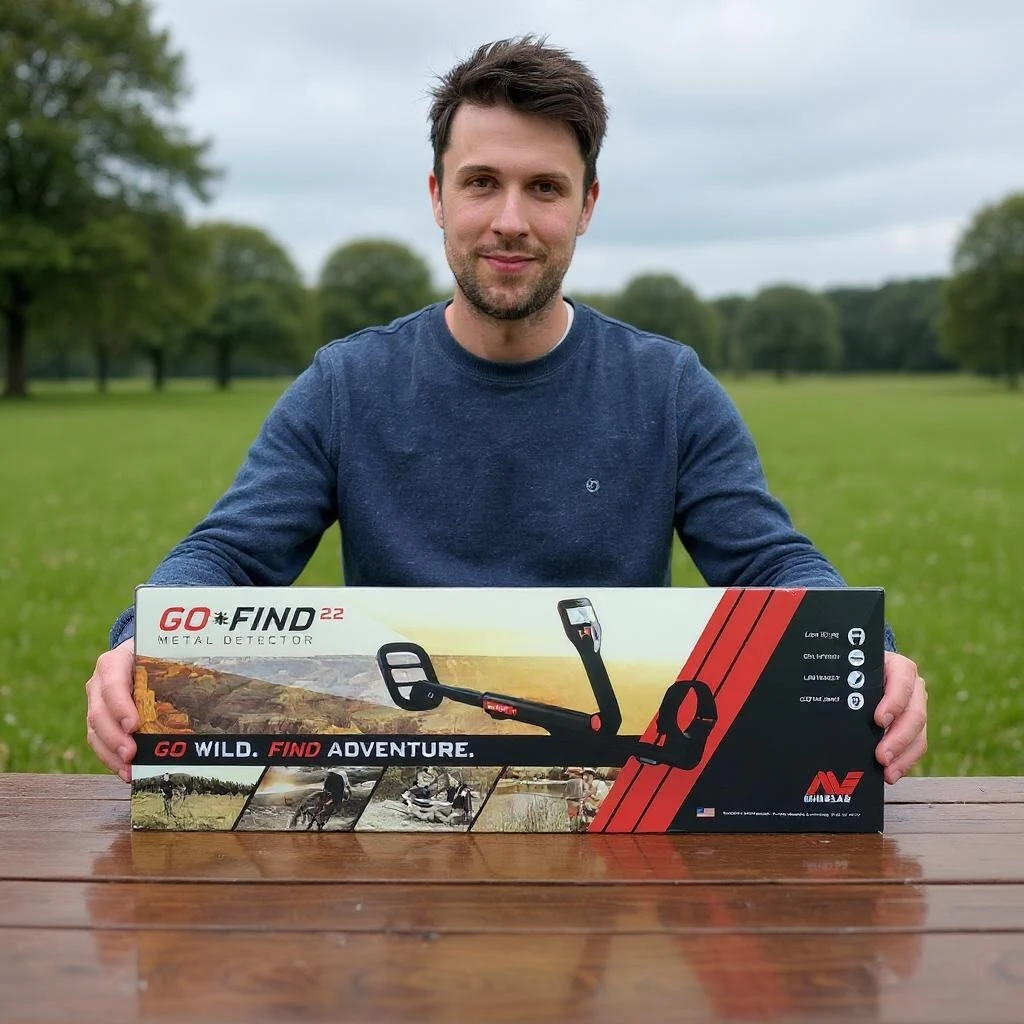
Key Features & Technology: 5/10
The GO-FIND 22 is built on Minelab's VLF (Very Low Frequency) technology, a standard and reliable single-frequency system. Its standout feature is the "Easy-Trak" automatic ground balancing, which means the detector adjusts itself to the ground conditions.
When I first saw the user interface with its four flashing Find Icons (Nail, Foil, Ring, and Coin), my initial thought was, "This is neat!" It felt like a fun, gamified way to see what might be under the coil.
In practice, these features are very basic. The detector has two preset find modes, three levels of sensitivity, and five volume levels. The 8-inch coil is waterproof, which is great for splashing around in the shallows, but the control box isn't.
My initial excitement about the icons quickly faded when I realized how rudimentary they are. The lack of a pinpoint mode to help zero in on a target is, for me, its biggest technical drawback.
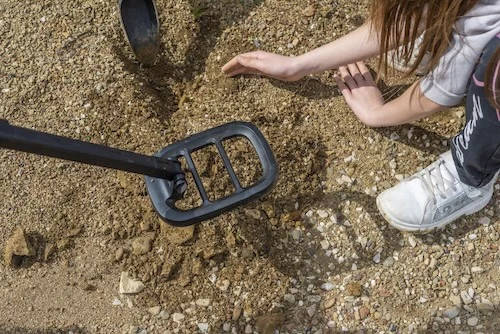
In-the-Field Performance: 5/10
Out in the field, my experience with the GO-FIND 22 is a mixed bag. In a clean park with modern coins buried just a few inches down, it's genuinely fun.
The crisp, high-pitched beep of a modern coin is unmistakable, and the flashing coin icon gave me a little jolt of excitement every time. I pulled a handful of modern pennies and a couple of dimes from a local park on my first outing, and that feeling of discovery is real and rewarding.
However, when I take it to an area with more trash or try to find older, deeper targets, the detector struggles. The recovery speed is slow, and the depth is limited to about 4-5 inches for a coin-sized target.
I remember getting a great-sounding signal in a trashy field, but without a pinpointer, I ended up digging a hole the size of a dinner plate just to find a single, deep bottle cap. That kind of experience is frustrating and highlights the machine's limitations very clearly.
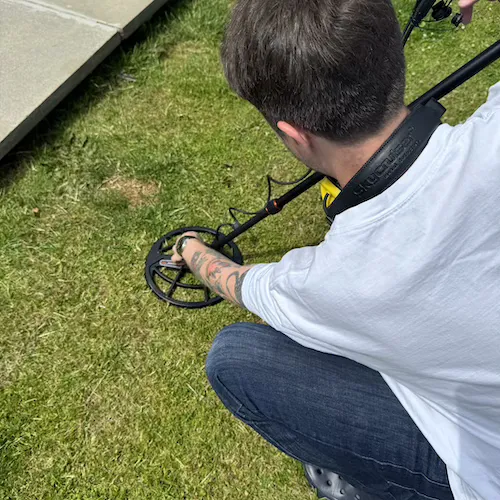
User Experience & Learning Curve: 9/10
This is where the GO-FIND 22 truly shines. For someone who has never held a metal detector before, the learning curve is practically zero.
You turn it on, you select a mode, and you start swinging. The icons, while basic, provide immediate visual feedback that is easy for anyone to understand.
I handed the GO-FIND 22 to my friend who has never detected, and within two minutes, they were confidently swinging. Their eyes lit up when they got their first clear signal, which turned out to be a modern pull-tab. They weren't disappointed at all; they were just thrilled the machine worked and that they had found something.
That's the magic of this detector. It removes the technical barrier and focuses on the pure, simple fun of the hunt.
I Recommend The GO-FIND 22 For:
Absolute Beginners & Children: Its simplicity, light weight, and instant setup make it the perfect introductory machine.
Families: It's a great "family detector" to take on camping trips or to the beach for a fun afternoon activity.
Casual Hobbyists: If you just want something to pack easily and use occasionally in parks without getting too serious, this is a great choice.
As a Backup/Travel Detector: Its incredible portability means you can stash it in a car or backpack for opportunistic hunts.
I Would Skip The GO-FIND 22 If:
You Are Serious About the Hobby: You will outgrow its capabilities very quickly.
You Hunt in High-Trash or Mineralized Areas: The simple technology will struggle in difficult conditions.
You Want to Find Old, Deep Relics or Coins: This is not a deep-seeking machine.
You Have a Slightly Higher Budget: Other detectors offer significantly more performance for a little more money.
The Breakdown
Final Verdict
I do recommend the Minelab GO-FIND 22, but only for a very specific audience. Its incredible portability and zero-learning-curve design make it the perfect introductory machine for absolute beginners, children, or families looking for a fun, casual activity. However, serious hobbyists will quickly find its performance, depth, and features too limiting and should look for a more capable model.
As an Amazon Associate we earn from qualifying purchases.
My Final Verdict: 6/10
My final score reflects exactly what the Minelab GO-FIND 22 is: a brilliantly designed entry point into the world of metal detecting that prioritizes portability and ease of use above all else.
Its fold-out design is genius. It's a machine that creates memories, even if it won't find you a historic hoard.
However, its performance is strictly in the beginner category. The plastic build, limited depth, and very basic feature set mean that anyone who catches the detecting bug will want to upgrade sooner rather than later.
It does exactly what it's designed to do—find relatively shallow targets with minimal fuss. It's a fantastic "fun" machine for the family or a travel-friendly backup, but it's not a serious, long-term tool for an aspiring enthusiast.
Author Profile

Piotr Lesniewski
"Digging up the past, one signal at a time."
Polish-born, Scotland-based, and obsessed with the beep. My passion began decades ago, exploring fields with my Dziadek (grandfather). Now, with over 10 years of digging under my belt, I'm here to share everything I've learned—unfiltered and unbiased—to help you unearth your own piece of history. No sales pitches, just real field experience.